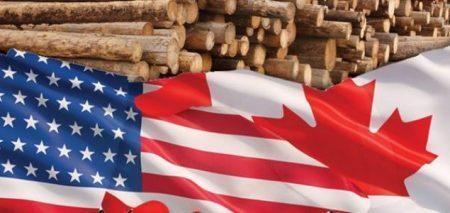January 10, 2017 | Industry Insights
U.S. Continues Canadian Softwood Lumber Antidumping and Countervailing Duty Investigations

In an expected move recently, at the request of U.S. lumber interests, the U.S. government began antidumping and countervailing duty (ADD/CVD) investigations. The investigations follow strict deadlines and schedules, but do allow for limited extensions of those deadlines. Based on HTSUS numbers provided, these investigations can affect what is historically over $4 billion of annual imports.
During the investigations, when certain affirmative findings occur, CBP is instructed to impose provisional measures on imports of goods within the investigations’ scope. Provisional measures involve the suspension of liquidation and the payment of estimated ADD and/or CVD.
The first of four determinations by the U.S. government was announced on January 6 by the USITC, who made a unanimous affirmative preliminary determination regarding injury. The next step is for the Commerce Department to render its preliminary determinations. If these preliminary determinations are affirmative, provisional measures will be imposed.
Presuming all deadlines are fully extended, Roanoke projects the following approximate dates for the imposition of provisional measures:
[table id=7 /]
It is within the discretion of the Commerce Department to allow bonding in lieu of paying the estimated antidumping and countervailing duties. However, for the past few years it has been a policy position that bonding is not an option and cash must be posted with CBP. This is likely to remain unchanged. With the new duty obligations on what otherwise is a duty-free product, we expect that CBP will be closely monitoring the sufficiency of continuous bonds used by importers. Where a bond is determined to be insufficient, CBP will require prospective entries to be secured by a new bond or require the use of a Single Transaction Bond for each entry. The new continuous bond is often for a much larger amount.Upon an affirmative finding of critical circumstances, which have been alleged to have occurred, provisional measures are retroactively imposed 90 days earlier from each start date.
CBP typically gives importers 30 days’ notice but has the discretion to take action on much shorter notice, including no advance warning at all. Importers and customs brokers are encouraged to monitor bond sufficiency and be prepared for requirements to file larger bonds. Roanoke encourages importers of Canadian softwood lumber to obtain approval from the surety underwriter for larger bonding as early as possible in order to avoid supply chain disruptions.





